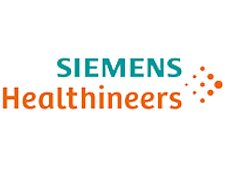NATIONAL HEALTH LABORATORY SERVICE (NHLS): Delivering Indispensable Services Through Extensive National Network
South Africa’s largest diagnostic pathology service, the National Health Laboratory Service (NHLS) is pivotal in delivering indispensable laboratory and public health services to more than 80% of the population through an extensive national network.
A national public entity established in 2000, the NHLS sets out to provide quality, affordable and sustainable health laboratory services, training and research, responsible for ensuring that diagnostic pathology services are provided to more than 80% of the South African population through its countrywide network of quality-assured diagnostic laboratories.
Formed in 2001 through the merger of the former South African Institute for Medical Research (SAIMR), the National Institute for Virology (NIV) and the National Centre for Occupational Health, the NHLS is a dynamic, focused health service provider of cost-effective and professional laboratory medicine through competent, qualified professionals and state-of-the-art technology.
“We are supported by academic and internationally recognised research, training and product development to maximise healthcare delivery in South Africa,” the NHLS outlines.
ABUNDANT ACTIVITIES
Besides the network of pathology laboratories operated by the NHLS, a number of specialist divisions also fall under the institution’s umbrella. The NHLS assists with communicable diseases, occupational health, and cancer surveillance, and holds specialised institutes such as the National Institute for Communicable Diseases (NICD), created by combining various structures inherited from the NHLS’s parent organisations.
The National Institute for Occupational Health (NIOH) investigates occupational diseases and performs occupational environment analysis through a variety of services, which encompass statutory autopsy, advisory and information services, health hazard evaluation and specialist laboratory services. The NIOH also manages the National Cancer Registry (NCR), which is responsible for analysing newly diagnosed cancer cases and to report annual cancer incidence rates.
South African Vaccine Producers (SAVP) is a further subsidiary of the National Health Laboratory Service, responsible for manufacturing vaccines and is the only manufacturer of anti-venom for a number of venomous snakes found in Africa. Forensic Chemistry Laboratories’ (FCL) facilities in Cape Town, Johannesburg, Pretoria, and Durban assist the country’s law enforcement agencies in matters such as analysing ante- and post-mortem blood for the presence of alcohol content, testing biological tissues and fluids in cases of alleged unnatural deaths and sampling food and cosmetics.
Critical to the South African healthcare system as its sole provider of diagnostic pathology services to a large portion of the population, in all the NHLS employs over 8,000 people and has laboratories across all nine provinces of South Africa.
“Our diverse activities include diagnostic laboratory services, pioneering research endeavours, comprehensive teaching and training initiatives, the manufacturing and production of life-saving anti-snake and other venom sera, and reagents and media,” condenses Chairperson Prof. Eric Buch.
“These and other activities illustrate our organisation’s firm commitment to carrying out our mandate to provide cost-effective and efficient health laboratory services to all public sector healthcare providers, support and conduct health research and provide training for health science education in conjunction with medical faculties at universities and universities of technology.
“With an extensive national network of laboratories, the NHLS is pivotal in delivering indispensable laboratory and public health services to more than 80% of the population.”
CYBER-HACK RECOVERY
In June the NHLS announced that it has been the victim of a ransomware attack which compromised its systems and infrastructure, causing outages in disseminating test results to physicians and creating chaos for healthcare services across the country. Reportedly the actions of the BlackSuit ransomware group, it left the NHLS unable to process millions of blood tests including those screening for diseases like tuberculosis (TB) and HIV/AIDS, as well as the Mpox outbreak impacting parts of Africa.
“The NHLS is handling this challenge with extreme urgency to ensure the timely and secure recovery of all affected operations,” the organisation made plain at the time, as it immediately set about implementing alternative plans to maintain business continuity and devising ways of making TB and HIV viral load historical test results available to clinicians. “The NHLS views this attack in a serious light with significant worry and is treating the situation with great urgency. The breach has endangered the safety and well-being of millions of public health patients.
“Despite the incident, the NHLS remains fully committed to providing high-quality diagnostic services to the public,” it assured, acknowledging the patience and the support of all impacted before the welcome update in August from Deputy Minister of Health, Dr Joe Phaahla, that NHLS operations had been fully restored.
“Deputy Minister Phaahla thanks the NHLS for its swift and tireless efforts to restore its laboratories to full operating capacity following a successful and comprehensive rebuilding of its information technology systems and infrastructure,” the statement read, with the NHLS poised to fortify its information systems against future threats. “Because more than 70% of healthcare decisions are dependent on their services, restoring operations underscores its commitment to the country’s public healthcare.”
“These improvements reflect its dedication to maintaining the highest service delivery standards,” Phaahla assessed of NHLS’s commitment to investing in advanced cybersecurity technologies and implementing new protocols designed to enhance the security and resilience of its digital infrastructure. “It is strengthening its systems to ensure that any future challenge is met with minimal disruption to its essential operations, allowing it to continue providing critical health services to the country with confidence and integrity.”
Even in the face of enormous challenges, some near-impossible to plan for, the NHLS remains undeterred and undisturbed in its primary goal of ensuring the overall care and well-being of patients by supporting a strong and effective public healthcare system. “We strive to provide high-quality pathology and laboratory services that are clinically efficient and cost-effective,” the NHLS emphasises.
“The constant drive for process improvement is the key to a successful organisation, and we are committed to providing pathology and laboratory services through competent professionals and state-of-the-art technology, supported by evidence-based research, training, and innovation to enhance integrated service delivery to meet the needs of the population.”

